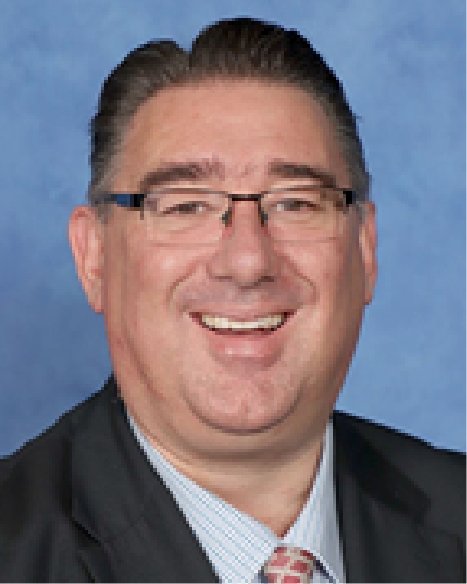Humanitarian Education
Fostering and supporting refugee education – the first part of the story.
Engaging in school-based educational research is not merely about observing positive impacts on teaching and learning; it's about actively contributing to transformative changes.

Barker’s refugee education project is an example of this. During an event last year, guest presenter Patricia Garcia AO posed a crucial question: What role can education, particularly institutions like Barker, play on the global humanitarian stage? Barker’s answer to this question has been to establish a “school within a school” for refugees which has been called Marri Mittigar (Dharug for “Many Friends”). The idea of “what can Barker do?” will continue at another event open to the wider community later this term, featuring Noor Azizah speaking on the plight of Rohingya refugees in Aceh, Indonesia. This blog post marks the beginning of a series that follows the journey of fostering and supporting refugee education in schools.
Barker’s approach of establishing a “school within a school”, where both setting and specialised support so crucial to meeting the unique educational needs of refugee students (such as: linguistic, social, cognitive, emotional, behavioural) are actively acknowledged, has been supported by the Barker Institute since the project began. Towards a Pedagogy for Radical Hope (available online), published in late 2023, continues to be significant example of this support. Originating as a literature review, Radical Hope’s author identified a scarcity of literature about how a whole school approach to refugee education in schools might look and then took the opportunity to explore this gap further. A tripartite model emerged: trauma-informed education, cross-cultural transition, and culturally responsive teaching.

Whole school approach to refugee education, from Scott (2023)
Towards a Pedagogy for Radical Hope is set to go through a bit of a revision process over the course of this year (and probably next!) as the author seeks to develop the ideas within in it. This will continue to be in conjunction with several different parties – academics, refugee education-related organisations. Seeking to avoid a one-size-fits-all mindset, Radical Hope looks to support those working in the field. It has already contributed to the development of a professional learning course for the refugee education project team, covering a range of topics essential for teachers working with children and young people from refugee backgrounds.
The professional learning that continues to emerge from the Barker Institute’s work in refugee education is shaped by important considerations highlighted by the research literature as well as what has been said by the teachers for whom the professional learning has been developed. The very first session used Bajaj et.al. (2023) Humanizing Education for Immigrant and Refugee Youth: 20 Strategies for the classroom and beyond as the basis for discussion – a 20 minute presentation focusing on the diverse backgrounds of children and young people with refugee backgrounds followed by a 40 minute discussion. It was a good starting point for the professional learning program, agreed to through listening to teacher voice from very early on; research is an important driver in determining the topics of each professional learning session, and how it might be delivered, but it is not the only one.
The early days of the program has underscored the importance of being intentionally agile, actively listening to what the teaching team wants to cover, and understanding what will be found most meaningful – all of which we will want to continue! Refugee education means increasing the cultural and linguistic diversity in one’s classroom, in addition to working in an environment where trauma will undoubtedly have an impact. The Barker Institute's exploratory research, such as Radical Hope, equipped participants with the language to articulate study objectives and preferred research topics. On a more operational level, recognising the challenges of fitting sessions into an already busy school environment meant scheduling sessions for Monday at 6pm, online, every fortnight. Such timing has allowed participants to attend comfortably after school hours, avoiding clashes with normal school day routines. Moreover, it accommodates other guest facilitators or presenters from here in Australia or further abroad. These sorts of discussions with teaching staff led to a clear ‘training agenda’. An Introduction to Refugee Education course emerged!
There is much to unpack when considering how school-based educational research might foster and support the development of a refugee ‘school within a school’. For now, three considerations:
- School-based educational research has a role to play in shaping school strategic planning initiatives.
- It provides an interface between research literature and professional learning that can help bring school strategic planning initiatives to life.
- It is most effective in this when it works alongside other drivers that develop professional learning opportunities; listening to teacher voice on an ongoing basis is one of them.
References
Bajaj, M., Walsh, D., Bartlett, L., Martínez, G. (2023) Humanizing Education for Immigrant and Refugee Youth: 20 Strategies for the classroom and beyond. Teacher College Press.
Scott, T., (2023) Towards a Pedagogy for Radical Hope: Developing a whole school approach to refugee education. Barker Institute: Sydney.

Dr Timothy Scott
Tim has held leadership roles in schools across Australia and abroad for 25 years, alongside teaching History and Modern Languages. His research focuses on intercultural learning and pedagogical translanguaging, refugee education, and student voice in improving educational practice. He is a lead researcher for the Barker Institute’s ongoing decade-long longitudinal study, The Barker Journey. Alongside his research work, Tim currently teaches History and IGCSE Global Perspectives. His PhD examined socio-political influences on contemporary German conceptions of history and archaeology.







